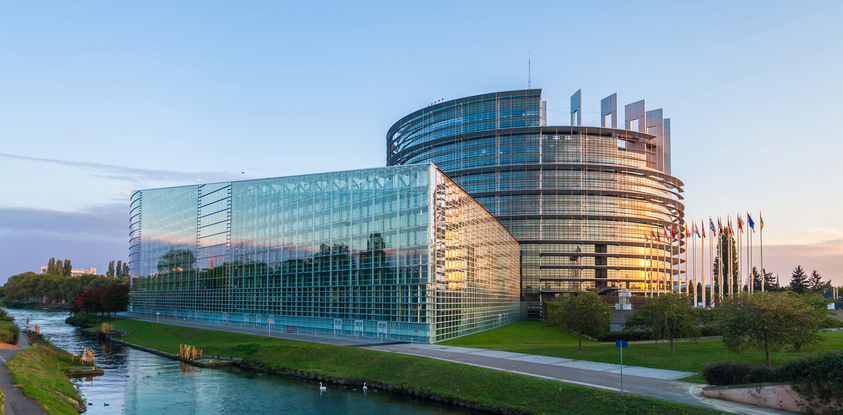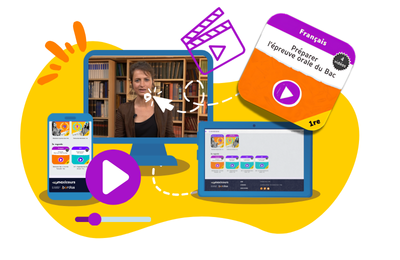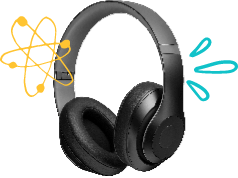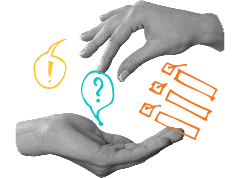The European Union
- Fiche de cours
- Quiz et exercices
- Vidéos et podcasts
Découvrir un aspect de la notion « Identités et échanges »
- L’Union européenne, anciennement Communauté économique européenne, regroupe à ce jour 28 pays. Elle est l’idée de grandes figures de l’histoire européenne, afin de créer une interdépendance économique et politique entre les pays d’Europe et d’éviter tout autre conflit après les ravages des deux guerres mondiales.
- Le Parlement européen siège à Bruxelles et à Strasbourg et est présidé par l’Italien David Sassoli depuis 2019.
- L’Union européenne joue un rôle économique important en Europe avec le libre-échange de personne et de bien. Elle a aussi un rôle diplomatique à l’échelle européenne et internationale.
L’histoire de l’Europe depuis la Seconde Guerre mondiale
The idea of a union between the different European countries was born after the Second World War. The instigators of the project (among which Konrad Adenauer, Winston Churchill, Jean Monnet, Simone Veil and Alcide De Gasperi) wanted to create an economic interdependence between the countries and avoid further conflicts. Indeed, the errors committed during the first half of the century must not be repeated!
In 1958 the European Economic Community
(EEC) was created and six countries joined it: Belgium,
Germany, France, Italy, Luxemburg and the
Netherlands.
Since then, 22 countries have joined the EEC which
changed its name in 1993, becoming the European
Union. If economy was still an important issue,
others such as climate, justice, migration, security or
environment had to be taken into account.
The European Parliament is located in Strasbourg and Brussels.

The European Parliament
Its members, called the MEPs (Member of the European Parliament) are elected by European voters every 5 years. It is composed of 751 members who elect the President every two and a half years. The current President is the Italian David Sassoli, since 2019.
We cannot deny the fact that, as far as stability is concerned, the EU has played an important role in Europe. Indeed, the continent has been at peace since 1945 even though some conflicts took place in the Balkans in the 1990s.
Prosperity is also a sign of the importance of the
EU as it helped raise the living standards of its
citizens. For example, the Gross Domestic Product per
capita since 1973 rose by 74% in France, 99% in Germany,
102% in the United Kingdom.
In 2002 a single currency was launched, the Euro.
19 countries out of 28 and 340 million people
use it.
Thanks to the abolition of the borders, people can study, live, work or retire wherever they choose and each citizen must be treated on an equal footing, whatever the country he or she decides to visit or stay in. As well as citizens, goods can travel freely, so the Europeans can draw the maximum benefit from these exchanges. It is worth noting that the EU is the world’s biggest exporter of goods and services.
The EU aims at:
- promoting peace;
- offering freedom;
- fighting social exclusion;
- ensuring sustainable development, price stability, full employment, environmental protection and social progress;
- enhancing an economic cohesion and solidarity;
- respecting the different cultures;
- establishing an economic and monetary union.
The values which prevail in the EU programme are those we
all want to defend: human dignity, freedom, justice,
democracy, equality, law, human rights, inclusion,
tolerance, non-discrimination, etc.
You can find these goals and values written in the Treaty
of Lisbon (2007) and the European Union Charter of
Fundamental Rights (2000).
All these efforts which have been undertaken for years and which represent the very basis of the commission are not vain since in 2012 the EU was awarded the Nobel Prize for promoting peace, reconciliation, democracy and human rights in Europe.

Des quiz et exercices pour mieux assimiler sa leçon
La plateforme de soutien scolaire en ligne myMaxicours propose des quiz et exercices en accompagnement de chaque fiche de cours. Les exercices permettent de vérifier si la leçon est bien comprise ou s’il reste encore des notions à revoir.

Des exercices variés pour ne pas s’ennuyer
Les exercices se déclinent sous toutes leurs formes sur myMaxicours ! Selon la matière et la classe étudiées, retrouvez des dictées, des mots à relier ou encore des phrases à compléter, mais aussi des textes à trous et bien d’autres formats !
Dans les classes de primaire, l’accent est mis sur des exercices illustrés très ludiques pour motiver les plus jeunes.

Des quiz pour une évaluation en direct
Les quiz et exercices permettent d’avoir un retour immédiat sur la bonne compréhension du cours. Une fois toutes les réponses communiquées, le résultat s’affiche à l’écran et permet à l’élève de se situer immédiatement.
myMaxicours offre des solutions efficaces de révision grâce aux fiches de cours et aux exercices associés. L’élève se rassure pour le prochain examen en testant ses connaissances au préalable.

Des vidéos et des podcasts pour apprendre différemment
Certains élèves ont une mémoire visuelle quand d’autres ont plutôt une mémoire auditive. myMaxicours s’adapte à tous les enfants et adolescents pour leur proposer un apprentissage serein et efficace.
Découvrez de nombreuses vidéos et podcasts en complément des fiches de cours et des exercices pour une année scolaire au top !

Des podcasts pour les révisions
La plateforme de soutien scolaire en ligne myMaxicours propose des podcasts de révision pour toutes les classes à examen : troisième, première et terminale.
Les ados peuvent écouter les différents cours afin de mieux les mémoriser en préparation de leurs examens. Des fiches de cours de différentes matières sont disponibles en podcasts ainsi qu’une préparation au grand oral avec de nombreux conseils pratiques.

Des vidéos de cours pour comprendre en image
Des vidéos de cours illustrent les notions principales à retenir et complètent les fiches de cours. De quoi réviser sa prochaine évaluation ou son prochain examen en toute confiance !









